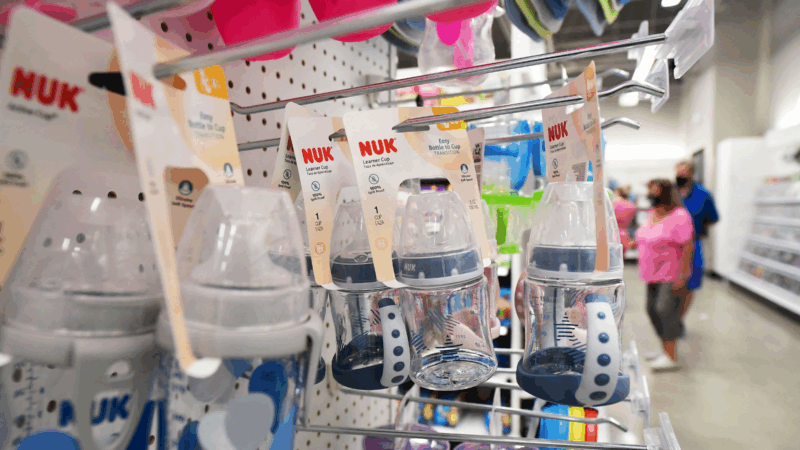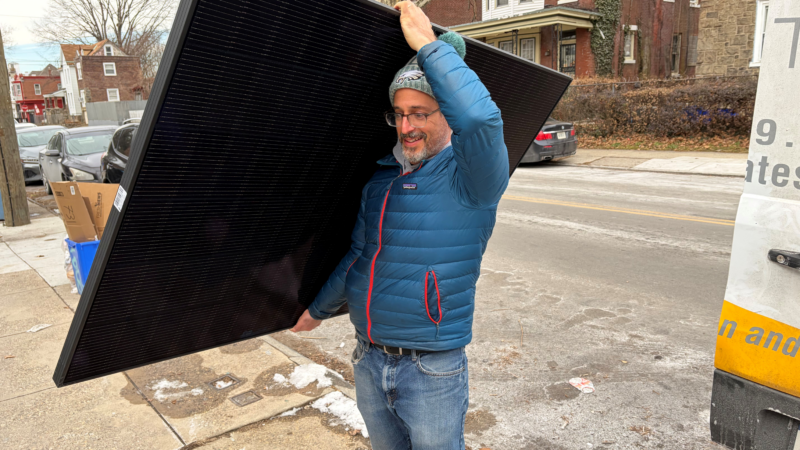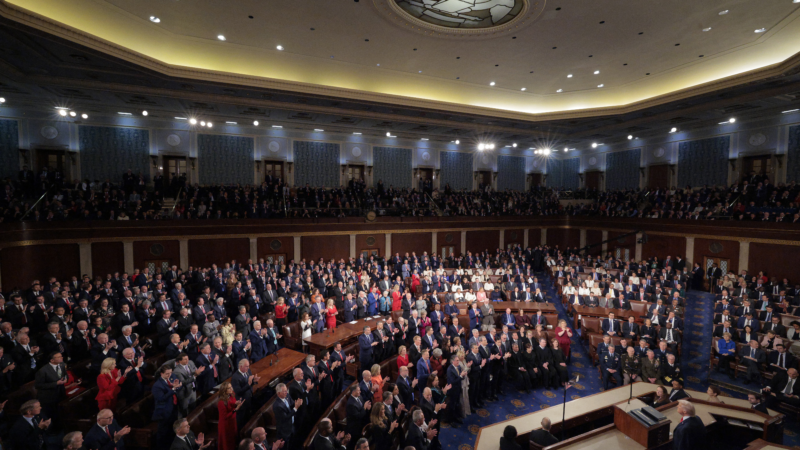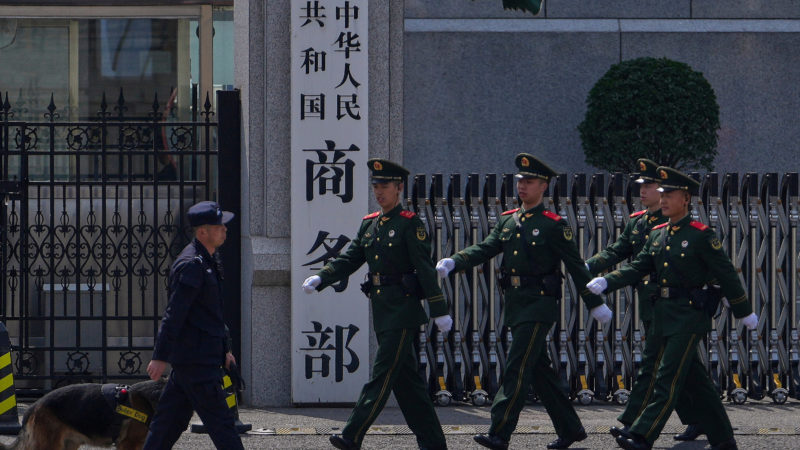How tariffs could impact the availability of baby products
If you have – or have had – small children, chances are, you’re familiar with Munchkin products. The company manufactures everything from sippy cups to bath toys, breast pumps to baby gates. Munchkin founder and CEO Steve Dunn recently wrote an open letter to President Trump and members of Congress about the harm new tariffs are doing to his business.
“These tariffs are having devastating real-life consequences,” he wrote. “These new tariffs are forcing us to halt orders, cut jobs and may soon prevent us from delivering essential baby products to parents nationwide.”
He went on to say that “due to the complete absence of necessary tooling and manufacturing expertise, automation, and skilled labor,” Munchkin has been unable to bring production to the U.S.
Dunn spoke with All Things Considered host Mary Louise Kelly about why he wrote the letter, and the impact the tariffs on goods from China could have on his company.
This interview has been lightly edited for length and clarity.
Interview Highlights
Mary Louise Kelly: Briefly outline for me why tariffs pose such a threat to your company.
Steve Dunn: Well, when the initial tariffs were implemented, most of the companies within the juvenile industry tried to absorb them. Now that the tariffs have increased to 145 percent, our industry and a lot of small businesses have just stopped ordering. And consumers – parents – will not find important juvenile products on the shelves.
Kelly: I’m just trying to get a picture in my head of what you’re talking about. You’re talking about products like strollers, products like baby gates, and you’re saying you cannot keep making them if the current situation persists.
Dunn: Mary Louise, our whole industry has stopped ordering products from China due to the 145 percent tariffs. These are tariffs that just can’t be passed on to two parents. You know, our birth rates are at the lowest levels in the last 40 years and making it more difficult and more expensive to be parents is going to even [exacerbate] that issue now.
Kelly: Stay with that point for a second, because in this open letter you write, and I’m quoting, “if action is not taken soon, the damage will be irreversible, not only for our company, our employees, but countless businesses, workers and families across America.” What is the damage you see being done to American families?
Dunn: The products they rely on – Munchkin operates in about 12 different categories of things from bottle brushes to bottles to a new product we launched that helps moms meet their breastfeeding goals. These products will not be on the shelves because our industry and millions of small businesses have simply stopped ordering. We will run out of inventory in the next 60 days, 90s days. And if we don’t place orders now, any order we place now will take 45 days to get here.
So we’re at a critical path where Munchkin owns thousands of tools in China. I can’t even move my tools to the U.S. So moving and trying to relocate businesses like the juvenile industry or the maternal health industry into the U.S. would take years and years. It would take government-supported programs to create manufacturing zones. Just to manufacture our sippy cups would take 100 molding machines in the U.S. – if we could find them.
Kelly: If President Trump were on the line with us now, he might be arguing, “hey, tariffs are going to bring manufacturing back to the United States. This is good for America. This is good for American workers.” What do you say to that?
Dunn: I would say I wholeheartedly support the intent of onshoring strategic industries like semiconductors, pharmaceuticals and aerospace. But with respect to the juvenile industry and products that parents need everyday, we don’t have $100 billion sitting in the bank. We have no ability and there is not this manufacturing base that is suddenly going to appear in the U.S. that can mold thousands and thousands of low-margin products. We don’t have the automation. We don’t have the skilled labor. So our industry is going to have layoffs. Our company has had a hiring freeze. We’re not innovating. We can’t find countries that don’t have tariffs right now that make these products affordable for America, for the American public.
Kelly: Are you in conversation with other small, medium- sized business owners about a path forward?
Dunn: Yes, we’re part of the Juvenile Products Manufacturing Association. I’ve talked with their general counsel. They’re also petitioning the administration to look at an exemption or a carve-out for the juvenile industry due to the importance of supporting parents. In talking with other CEO leaders, everyone that I’ve talked to has stopped 100 percent of their orders coming in from China. That 145 percent on products will just be too expensive, and the consumers will not be able to pay for them.
This story was adapted for the web by Mallory Yu.
When a horse whinnies, there’s more than meets the ear
A new study finds that horse whinnies are made of both a high and a low frequency, generated by different parts of the vocal tract. The two-tone sound may help horses convey more complex information.
Hundreds of American nurses choose Canada over the U.S. under Trump
More than 1,000 American nurses have successfully applied for licensure in British Columbia since April, a massive increase over prior years.
Trump’s many tariff tools mean consumer prices won’t go down, analysts say
The Supreme Court struck down President Trump's signature tariffs. But the president has other tariff tools, and consumers shouldn't expect cheaper prices anytime soon, economists say.
Tax credits for solar panels are available, but the catch is you can’t own them
Rooftop solar installers are steering customers toward leases instead of purchases. Federal tax credits for purchased systems have ended but are still available for leased ones.
5 takeaways from Trump’s State of the Union address
President Trump hit familiar notes on immigration and culture in his speech Tuesday night, but he largely underplayed the economic problems that voters say they are most concerned about.
China restricts exports to 40 Japanese entities with ties to military
China on Tuesday restricted exports to 40 Japanese entities it says are contributing to Japan's "remilitarization," in the latest escalation of tensions with Tokyo.







